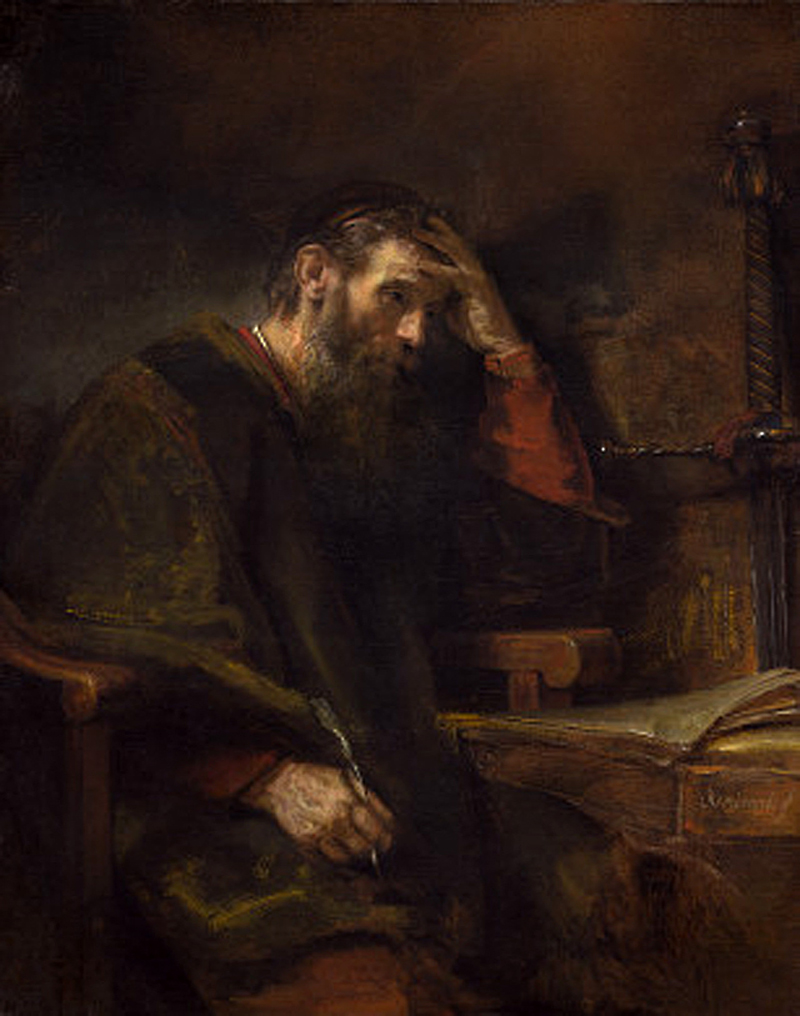All Things to All People
1 Corinthians 9:19-23 New Revised Standard Version (NRSV)
19 For though I am free with respect to all, I have made myself a slave to all, so that I might win more of them. 20 To the Jews I became as a Jew, in order to win Jews. To those under the law I became as one under the law (though I myself am not under the law) so that I might win those under the law. 21 To those outside the law I became as one outside the law (though I am not free from God’s law but am under Christ’s law) so that I might win those outside the law. 22 To the weak I became weak, so that I might win the weak. I have become all things to all people, that I might by all means save some. 23 I do it all for the sake of the gospel, so that I may share in its blessings.
***********
Although
winter played havoc on our ability to meet regularly for our Wednesday Bible
Study, we’re finally back on schedule. Today we turn to chapters 8-9 of 1
Corinthians. Chapter 8 speaks to the question of meat sacrificed to idols. It
is said that the best meat came from the Temples, so if you’re a meat eater you
will be tempted to purchase sacrificial meat. While these idols might be
meaningless, not everyone in the church is at the same place. Anyway, that
leads to a question of authority and power in the church. Paul is willing to
give up certain freedoms, if it will prevent sisters and brothers from falling
or stumbling.
Paul
proceeds in chapter 9 to defend his apostolic authority. He makes clear that
there are certain rights and privileges, like salary and benefits, that he’s
forgoing. Why? Because he believes it is for the benefit of the Corinthians.
His reward is preaching free of charge. That is, he has freedom to say what he
will. After all, you can’t fire someone you’re not paying. There is a certain
authority that comes from preaching free of charge. Those of us who gain our
livelihood from ministry—something Paul affirms is appropriate—know that if you’re
going to stay employed you may have to watch what you say.
All of
this leads to Paul’s declaration that he has “become all things to all people,
that I might by all means save some.” (1 Corinthians 9:22b). What does it mean
to be all things to all people? We often turn this around, noting we can’t be
all things to all people. It’s simply impossible. Yet, here is Paul making this
claim. So, what does he mean?
Charles
Campbell suggests that Paul plays the role of the trickster here. By being a
Jew to win the Jews or living outside the Law to reach those outside the Law,
he is able to navigate boundaries that inhibit the message. His is a rather
fluid form of ministry. So, when it comes to being all things to all people,
Paul may sound wishy-washy, but he really isn’t. Thus, Campbell writes:
Most of us have seen so many politicians engage in this tactic that we are rightly suspicious of it. On another level, however, this is not what Paul is up to at all. Rather, Paul is crossing boundaries and disrupting categories to bring the gospel to diverse people. He identifies with others so that he can proclaim the gospel in a way that he can be heard. [Campbell, 1 Corinthians,Belief, p. 160].
In essence what Paul is saying here is that he’s all in on
this Jesus thing. He is willing to put himself at the mercy of others, if it
will allow him to share what he believes is the message of God for this people.
Thus,
Campbell writes: “At the deepest level,
Paul’s trickster-like activity embodies the disruptive gospel itself. By
crossing these various boundaries and unsettling these social categories Paul
enacts the in-breaking new creation” [Campbell, pp. 160-161]. So how might we engage
in the kinds of boundary-crossing disruptive unsettling ministry that might
give evidence of the inbreaking of the new creation (realm of God)? What might
this look like in our contexts? In other words, what is the Holy Spirit up to?
Picture attribution: Rembrandt Harmenszoon van Rijn, 1606-1669. Apostle Paul, from Art in the Christian Tradition, a project of the Vanderbilt Divinity Library, Nashville, TN. http://diglib.library.vanderbilt.edu/act-imagelink.pl?RC=55240 [retrieved March 19, 2019]. Original source: http://www.nga.gov/fcgi-bin/tinfo_f?object=1198.
Picture attribution: Rembrandt Harmenszoon van Rijn, 1606-1669. Apostle Paul, from Art in the Christian Tradition, a project of the Vanderbilt Divinity Library, Nashville, TN. http://diglib.library.vanderbilt.edu/act-imagelink.pl?RC=55240 [retrieved March 19, 2019]. Original source: http://www.nga.gov/fcgi-bin/tinfo_f?object=1198.

Comments